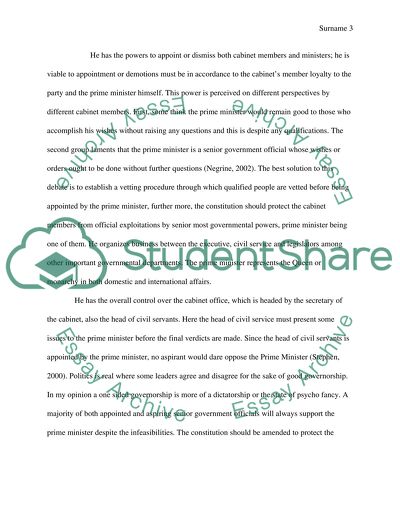Cite this document
(“Critically assess the Prime Minister's powers, Review the role of the Essay”, n.d.)
Critically assess the Prime Minister's powers, Review the role of the Essay. Retrieved from https://studentshare.org/history/1471306-critically-assess-the-prime-ministeryies-powers
Critically assess the Prime Minister's powers, Review the role of the Essay. Retrieved from https://studentshare.org/history/1471306-critically-assess-the-prime-ministeryies-powers
(Critically Assess the Prime Minister'S Powers, Review the Role of the Essay)
Critically Assess the Prime Minister'S Powers, Review the Role of the Essay. https://studentshare.org/history/1471306-critically-assess-the-prime-ministeryies-powers.
Critically Assess the Prime Minister'S Powers, Review the Role of the Essay. https://studentshare.org/history/1471306-critically-assess-the-prime-ministeryies-powers.
“Critically Assess the Prime Minister'S Powers, Review the Role of the Essay”, n.d. https://studentshare.org/history/1471306-critically-assess-the-prime-ministeryies-powers.


